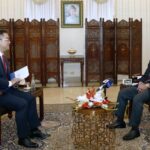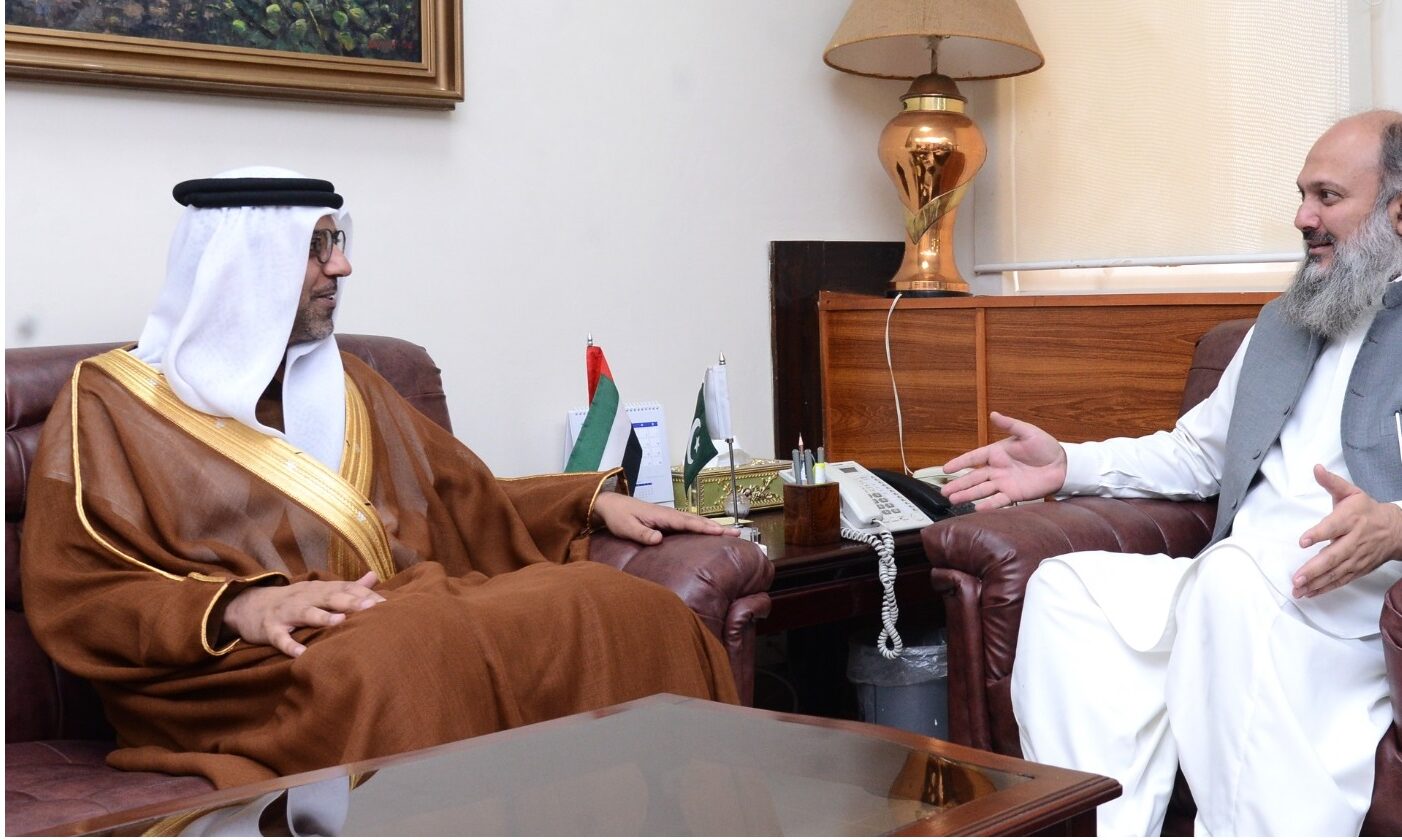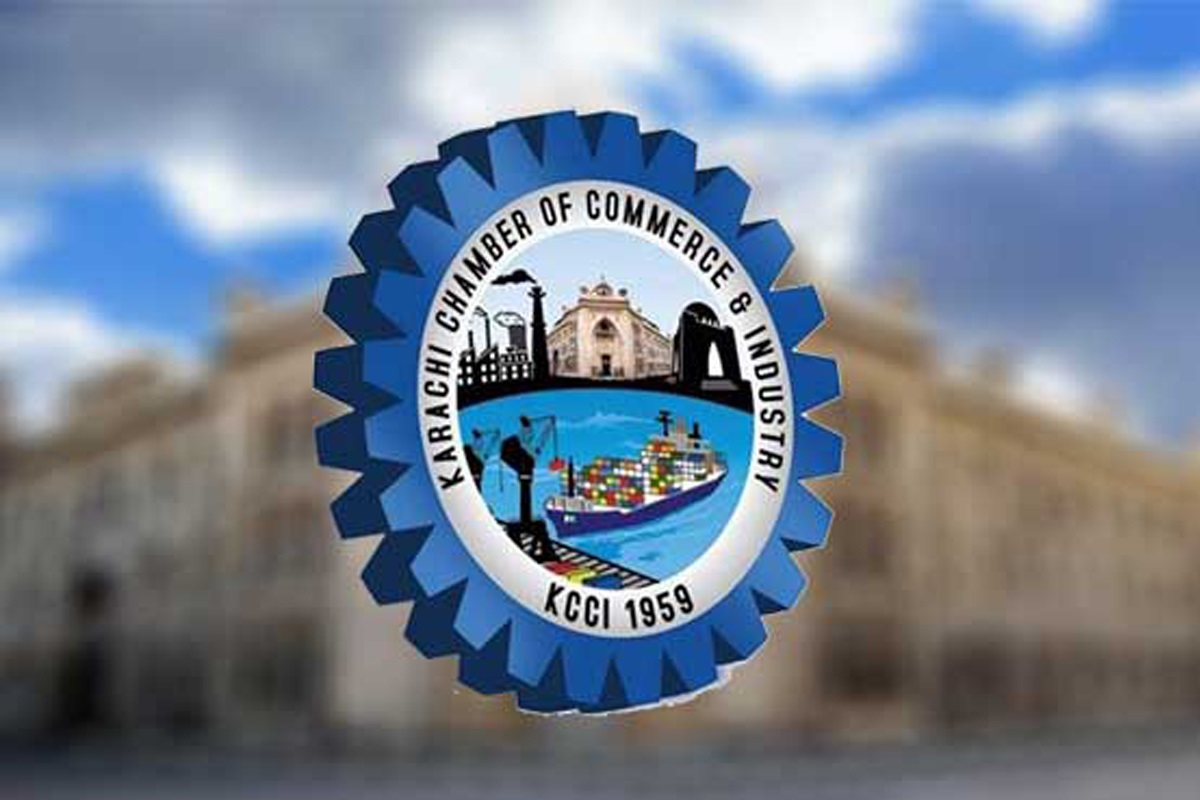Karachi, August 12, 2020: Ahmed Chinoy Chairman of Pakistan Cloth Merchants Association said the Lockdown emerged from the global COVID-19 pandemic, it is continuing to devastate communities and jobs, challenge businesses that struggle to survive, and strain fiscal space of governments working to protect both lives and livelihoods.
Global trade is heavily impacted as governments took swift measures to stymie the outbreak, declaring partial or total lockdown measures in countries around the world that have not yet been completely lifted.
Ahmed Chinoy said last May, the country recorded $1.39 billion in merchandise exports, the lowest number in years and a 34 percent drop from a year ago. Short-term global trade prospects don’t offer room for optimism a good predictor of trade flows, forecast contractions in exports in the months ahead.
At such a time, exports are crucial to Pakistan’s recovery for several reasons. First, exports in Pakistan are labor-intensive and provide plenty of good jobs for Pakistanis. Second, exports offer a genuine boost to otherwise stagnant productivity as Pakistani exporters are 25 percent more productive than non-exporting firms, and their productivity grows as exports pick up. Third, exports are a good source of foreign currency to pay for needed imports.
Last, the world economy is 258 times larger than Pakistan’s, making the global marketplace an inevitable destination for Pakistani firms, and offering vast opportunities for Pakistani firms to scale up.
Ahmed Chinoy said the initial priority is to make exports increase Government should form a committee of Businessmen from various association and industries including skill full person of different industries including Government officials.
The committee present report how to increase export and decrease import as per their industries highlight the top importing item and find the way to decrease them if possible that the importing items can manufacture in Pakistan so try to manufacturer those items in Pakistan. The domestic industry manufacture the importing item which will be cheap compare to import also the standard must be maintained as per international standard in this way import will decrease if we maintain the international standard we will also capable to export that item also the job will be created the domestic industries will be boost.
The domestic industries suffer due to increase in manufacturing cost due to which they are expenses the Government should take step to support that industries or give incentive to those unit in the way of taxes relief also provide subsidies in utility bills or fix their utilizes bill to strengthen them. Also other import items which we cannot manufacturer then find the alternate ways to decrease import. COVID-19 may reduce the speed of the globalization process. But the fact is that bringing supply chains home would defy economic rationality.
The success of the recently announced industrial strategy ‘Make in Pakistan’ relies mainly on the ability of Pakistani producers to access raw materials and intermediate inputs at world prices. ‘Make in Pakistan’ is to be successfully complemented by a ‘Sell to the World’ initiative, then import duties on final goods will also need to fall gradually. Pakistani makers will go global anytime soon, since they will prefer the coziness of the highly protected domestic market.
Ahmed Chinoy said Promoting exports smartly and proactively COVID-19 did not just reduce export flows; it broke many of the underlying buyer-seller links. Helping firms to seeking new ones needs to be policy priority.
Finding new trading partners will take time and money. In the past, trade fairs and exhibitions would offer business matchmaking platforms for producers and their prospective clients. But COVID-19 has upset such opportunities.
In the same way, people discovered they can run their meetings from their living rooms, buyers and sellers will likely opt for remote business meetings too. The Trade Development Authority of Pakistan (TDAP) should take note of this fast-changing reality and leverage artificial intelligence and big data to help exporters harness the potential of online marketing platforms.
Ahmed Chinoy said helping firms comply with international standards In addition, it’s critical that Pakistan help its firms comply with international standards and secure the right certifications to prove it. Pakistan has a comparative advantage in the personal protective equipment (PPE) market.
Many textile and apparel firms have adapted quickly to the COVID-19 crisis and shifted their production to face masks and shields for healthcare providers and frontline workers at home and abroad.
But complying with strict health standards expected by clients is expensive. The COVID-19 pandemic has brought in massive changes in the ways we interact, consume, and produce. What hasn’t changed is the need for more and better exports for Pakistan’s growth and development.
Ahmed Chinoy said upgrading the regulatory environment to take advantage of this trend Pakistan needs to upgrade its regulatory environment. To sustain growth in these sectors and encourage firms to innovate in the industry, intellectual property needs to be adequately protected.
Growing in this segment will also require to facilitate the movement of talent in and out of Pakistan, expediting the issuing of business visas for foreigners coming into Pakistan, and actively negotiating expedited visa processes for Pakistani experts travelling to visit their clients.
The COVID-19 pandemic has brought in massive changes in the ways we interact, consume, and produce. What hasn’t changed is the need for more and better exports for Pakistan’s growth and development.
The success of the ‘Make in Pakistan’ strategy, crucially depends on its complement ‘Sell to the World’. This demands policy makers to lift all existing barriers to export, and industry leads to make smart decisions and take informed risks to venture into the global marketplace.









